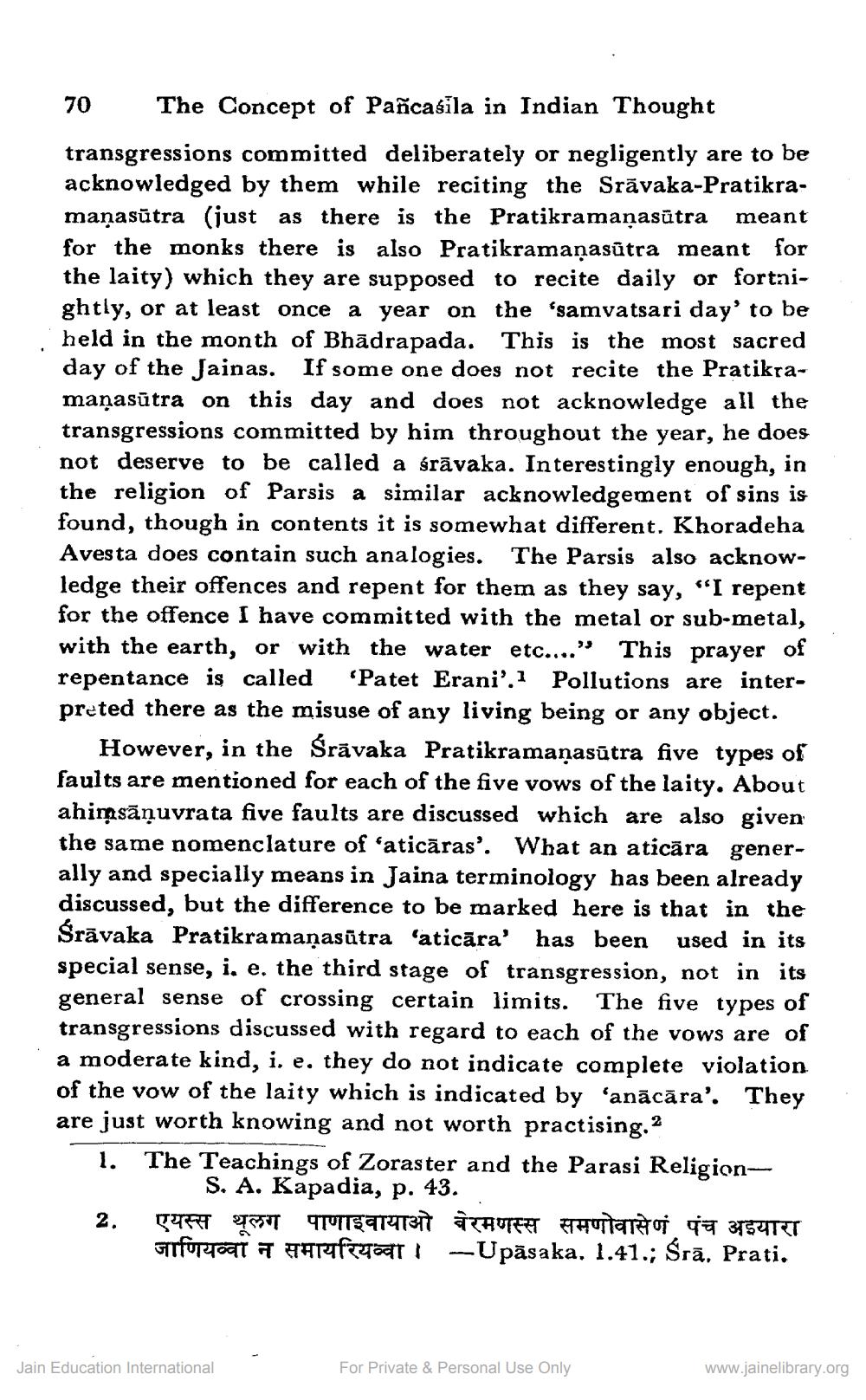________________
70 The Concept of Pañcasila in Indian Thought
meant
transgressions committed deliberately or negligently are to be acknowledged by them while reciting the Srāvaka-Pratikramaṇasūtra (just as there is the Pratikramaṇasūtra for the monks there is also Pratikramaṇasūtra meant for the laity) which they are supposed to recite daily or fortnightly, or at least once a year on the 'samvatsari day' to be held in the month of Bhadrapada. This is the most sacred day of the Jainas. If some one does not recite the Pratikramaṇasūtra on this day and does not acknowledge all the transgressions committed by him throughout the year, he does not deserve to be called a śravaka. Interestingly enough, in the religion of Parsis a similar acknowledgement of sins is found, though in contents it is somewhat different. Khoradeha Avesta does contain such analogies. The Parsis also acknowledge their offences and repent for them as they say, "I repent for the offence I have committed with the metal or sub-metal, with the earth, or with the water etc...." This prayer of repentance is called 'Patet Erani'.1 Pollutions are interpreted there as the misuse of any living being or any object.
However, in the Śravaka Pratikramaņasūtra five types of faults are mentioned for each of the five vows of the laity. About ahimsaṇuvrata five faults are discussed which are also given the same nomenclature of 'aticãras'. What an aticara generally and specially means in Jaina terminology has been already discussed, but the difference to be marked here is that in the Śrāvaka Pratikramaṇasūtra 'aticāra' has been used in its special sense, i. e. the third stage of transgression, not in its general sense of crossing certain limits. The five types of transgressions discussed with regard to each of the vows are of a moderate kind, i. e. they do not indicate complete violation of the vow of the laity which is indicated by 'anācara'. They are just worth knowing and not worth practising.2
1.
2.
The Teachings of Zoraster and the Parasi ReligionS. A. Kapadia, p. 43.
एयस्स थूलग पाणाइवायाओ वेरमणस्स समणोवासेणं पंच अइयारा ff-Upāsaka, 1.41.; Śrā, Prati.
Jain Education International
For Private & Personal Use Only
www.jainelibrary.org




